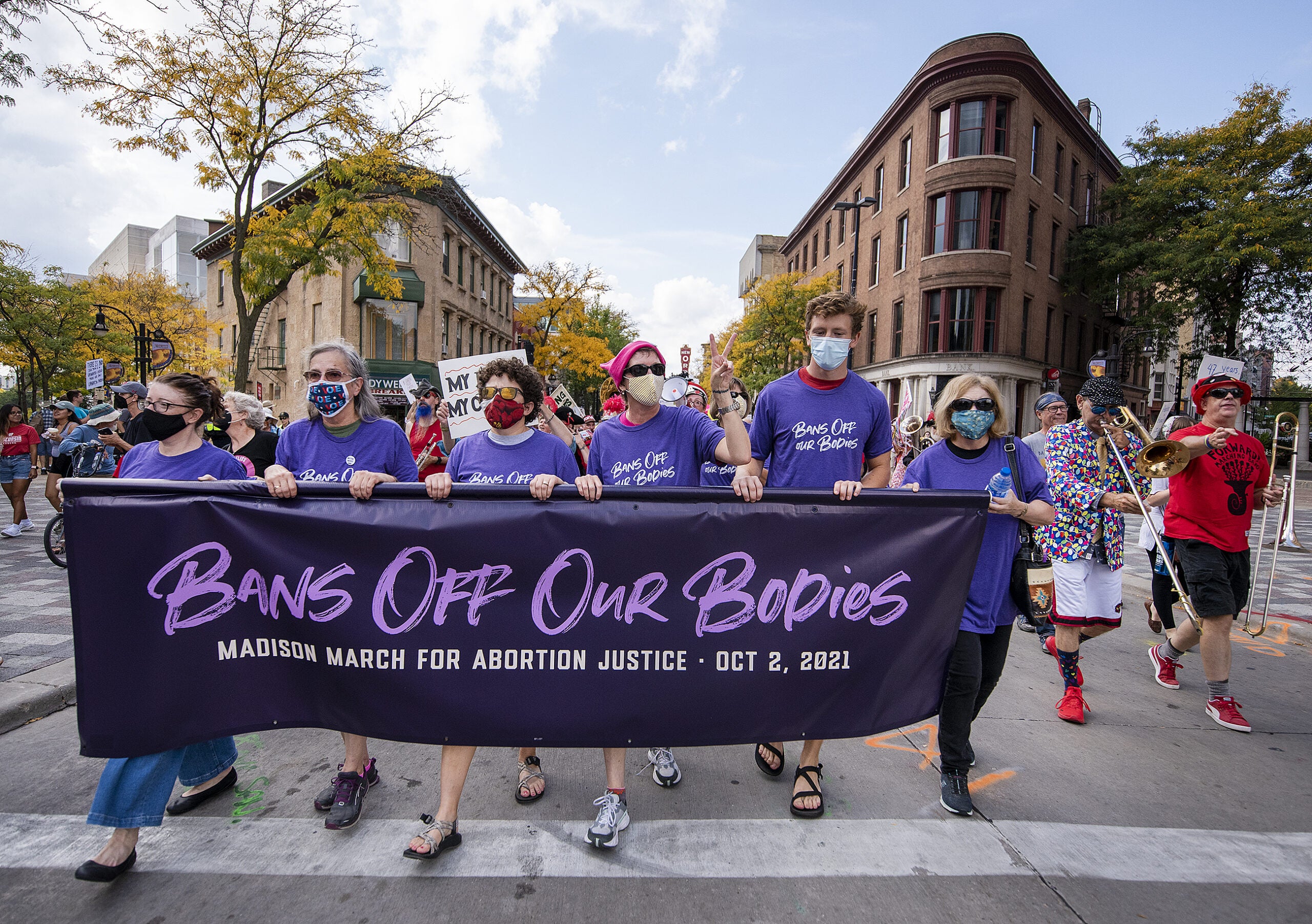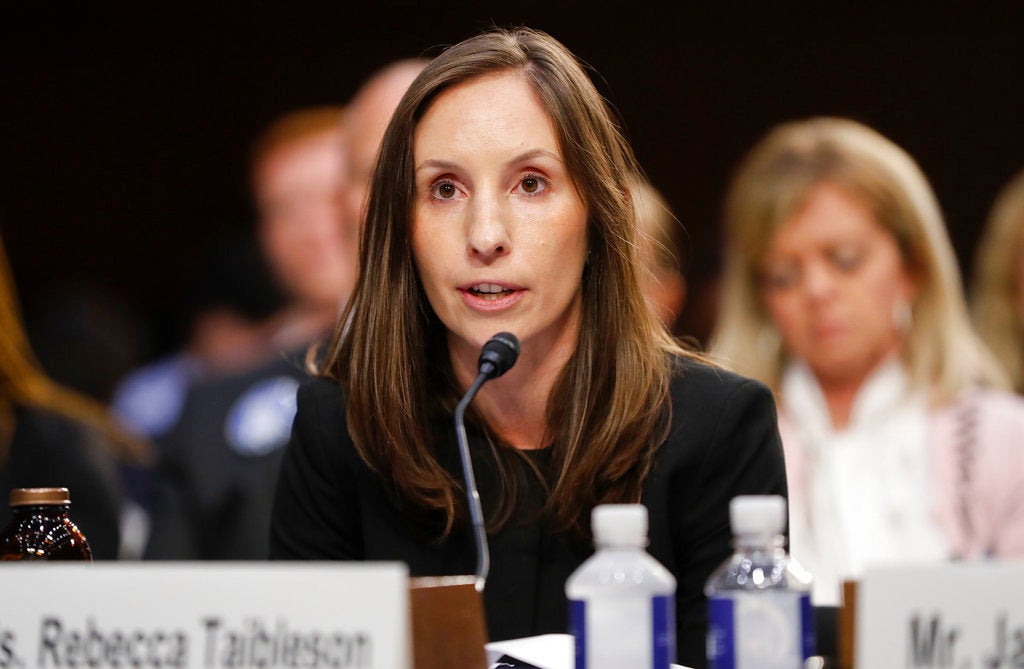A new national poll from the Marquette University Law School found a majority of Americans support legal access to abortion, but are split on new abortion restrictions being considered by the U.S. Supreme Court.
The poll also found that the public’s support for the High Court has declined significantly in the past two years, and most people say its decisions are driven mostly by politics, not the law.
The poll was conducted in mid-January, and released Wednesday morning. Hours later, reports emerged that liberal Justice Stephen Breyer plans to retire, giving Democratic President Joe Biden an opportunity to appoint Breyer’s successor. The move will likely only raise the profile of the Court among political partisans as the justices take on highly-charged cases involving the right to abortion, gun rights and race-based preferences in college admissions.
News with a little more humanity
WPR’s “Wisconsin Today” newsletter keeps you connected to the state you love without feeling overwhelmed. No paywall. No agenda. No corporate filter.
The finding that most Americans oppose overturning Roe v. Wade, the landmark 1973 case that legalized abortion, is not new. Polling by Marquette and others has consistently found majority support for legal abortions, especially in certain cases.
“There are very large majorities who think there should be a right to abortions under some circumstances (such as) the life and health of the mother, rape or incest,” said Charles Franklin, director of the Marquette poll. “But then support falls off and becomes more of an even split.”
Among respondents to the poll who had an opinion on Roe v. Wade, 28 percent favored overturning the decision and 72 percent opposed it.
The Supreme Court heard arguments Dec. 1 in a challenge to a Mississippi law that bans abortions after 15 weeks. Upholding that law would mean overturning the key finding in Roe, which is that women have a constitutional right to abortion in the first two trimesters of pregnancy.
But public opinion does not appear to see upholding the Mississippi law as equivalent to overturning Roe. Forty-nine percent of respondents said they favor upholding the 15-week abortion ban, and 51 percent oppose it.
“We see people more willing to accept a significant increase in the limitations on abortion, even as nearly three-quarters say they don’t want Roe stricken down completely,” Franklin said.
Marquette polled 1,000 adults; the poll’s margin of error was 4 percentage points.
Support for the Court has fallen significantly since 2020, when Marquette found 66 percent approved of the job the Court was doing and 33 percent disapproved. Today, 51 percent approve and 46 percent disapprove. That is roughly the same as Marquette’s finding in its September 2021 poll. Franklin called the drop in approval “stark.”
The poll also found a majority of people — 53 percent — believe the court is “mainly motivated by politics” in its decisions, compared to 47 percent who said it is mainly motivated by the law. The responses changed when the question was phrased as being about “the justices” as opposed to “the Court;” with 42 percent saying they believe justices are mainly motivated by politics and 58 percent by the law.
The makeup of the U.S. Supreme Court has been bitterly contested in recent years. Following the death of conservative Justice Antonin Scalia in 2016, Republicans in the U.S. Senate held open the seat rather than allow Scalia’s successor to be appointed by Democratic President Barack Obama. Republican President Donald Trump appointed Justice Neil Gorsuch to succeed Scalia in 2017, and in 2018 appointed Justice Brett Kavanaugh after the retirement of Justice Anthony Kennedy. In 2020, liberal justice Ruth Bader Ginsburg died at age 87, and Republicans in the Senate rushed the appointment of conservative Justice Amy Coney Barrett in the final months of the Trump administration.
While this poll was being conducted, the Supreme Court struck down the Biden administration’s vaccine-or-test mandate for employees at large companies. Marquette found a majority — 54 percent — supported the mandate, while 45 percent opposed it.
A larger majority — 61 percent — favored requiring health care workers to be vaccinated, compared to 38 percent opposed. The Supreme Court upheld the Biden administration’s vaccine requirement for those workers.

The Marquette University Law School Poll asked Jan. 2022 poll respondents whether they had a favorable or unfavorable opinion of U.S. Supreme Court justices. Photo courtesy of Marquette University Law School Poll
Supreme Court justices serve for life, and the U.S. Constitution intentionally insulates the Court from political considerations. But liberal and conservative justices alike have expressed concern about maintaining the legitimacy of the Court in the eyes of the public. The Marquette poll’s findings of the favorability ratings of different justices show that, while many people did not have opinions about individual justices, the trend in approval showed that more recently appointed justices were rated less favorably.
Kavanaugh was the least popular justice, with a net favorable rating of -11. Coney Barrett’s net favorability was -2, and Gorsuch’s was +1. Chief Justice John Roberts had a net favorable rating of +12. The most popular justice on the Court was Justice Sonia Sotomayor, who the poll found had a +20 favorability rating. The poll found Breyer was the least-well-known justice, with only 21 percent saying they were able to express an opinion about him. Among those who could, his net favorable rating was +7.
Wisconsin Public Radio, © Copyright 2025, Board of Regents of the University of Wisconsin System and Wisconsin Educational Communications Board.







